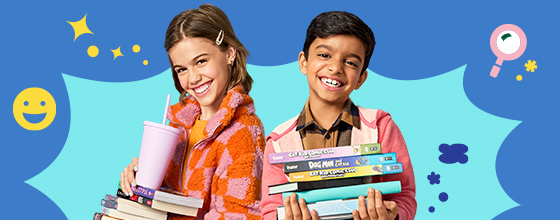Originally published by On Our Minds on August 24, 2021
Karen Baicker, Executive Director of the Yale Child Study Center – Scholastic Collaborative for Child & Family Resilience; and Scholastic Publisher for Family and Community Engagement, offers critical insights for families on how to help children regain social-emotional stability as they return to the classroom.
Many families are also poised for a unique “back-to-school” experience as they prepare to support kids through the school year. And like students, parents and caregivers can be filled with a mix of anticipation tinged with anxiety about what this next season holds. Some of the same insights we are providing for educators can also be helpful for families as they navigate back-to-school and changing guidance in their own lives, jobs, and activities.
We’ve shared with educators the metaphor that we’re all in the same storm, but we aren’t in the same boat — to recognize that each student has experienced the pandemic in a unique way. Some may have suffered family loss and hardship; social isolation and uncertainty will have affected many; and nearly all have found their academic and social-emotional learning disrupted. Of course, this is true for all of us and it’s important to recognize that we are each changed in different ways by this storm. Beyond that, we are also now struck by the realization that the storm we are in continues to change direction and strength, with new information emerging daily about the pandemic’s twists and turns.
Our children look to us for certainty and guidance that can be hard to give when we ourselves feel shaky. In these cases, educators and parents alike can focus on the knowledge that our presence in children’s lives is constant and reliable; assurance that we will share frequent and honest information about what we do know; that we will keep to a predictable but flexible routine; and that we will give them choices about their learning and activities within the overriding concern for physical and mental wellbeing.
Data on the impact the pandemic has had on children reveals an enormous spike in emergency room visits for mental health symptoms and an exponential increase in referrals for mental health services. These facts and figures are crucial indicators for educators who are welcoming students into their doors — but they’re also our kids! They are our first grader who attended kindergarten remotely and doesn’t know what to expect; our middle schooler whose previously shaky organizational skills have now unspooled; our teenager who has been attending virtual class from bed and who won’t come to the table for dinner.
Emotional needs must come first. Children may have difficulty recognizing if they are anxious, stressed, or depressed. For your children, place your focus on their mental wellbeing rather than on math and reading scores and view the first few months of this school year as a time to build confidence and self-esteem. Districts will likely be providing extra resources for helping children “catch up,” with individualized learning plans, tutors, and extended hours. Let your child know that there will be plenty of time and support for catching up – more than ever!
Kids need routines — but also extra independence. For many of us, it’s been a long time since we practiced a normal school or workday routine. Packing a backpack, making lunch, saying goodbye. Returning home, kicking off your shoes, having a snack. These routines matter for all of us, and they matter differently for kids at different developmental stages. Create morning routines this fall for yourself and your children that allow for some extra time and begin implementing them soon. At the same time, be aware that your child has had a lot of independence and decision-making ability taken away by the ever-shifting protocols of the pandemic and the need for safety. Where possible—perhaps in the time afterschool—allow some independence and choice.
Positive growth can come from challenging experiences. There is no doubt that we have been experiencing collective trauma from the impact of the pandemic, the effects of which will be with us for a generation or more. The education community has made great advances in recognizing and addressing the toll that adversity and toxic stress can take on children’s development and learning. There is an emerging field that we are focusing on at the Collaborative known as post-traumatic growth. Post-traumatic growth research suggests that adversity and trauma can provide unique opportunities for growth and resilience that wouldn’t have otherwise occurred.
During the pandemic, we’ve seen our remarkable ability to adapt and pivot, in ways and at speeds that we never would have thought possible before. Schools were able to shift to remote learning; many of us have gotten more work done perched at our kitchen tables over video calls than we ever could have imagined. And our kids, too, have continued to learn in their amazing and brilliant ways. Recognizing our strength, our flexibility, and the ways we’ve supported each other can give us confidence in our own resilience to continue moving forward.
 Book Clubs
Book Clubs
Scholastic Book Clubs helps kids discover the joy of reading. Together, we put can’t-miss books into kids’ hands—at can’t-miss prices, while also giving back to a teacher's classroom!
Visit us online Book Fairs
Book Fairs
Bookjoy or bust! Millions of children have discovered books—and a lifelong love of reading—at a Scholastic Book Fair.
Visit our site